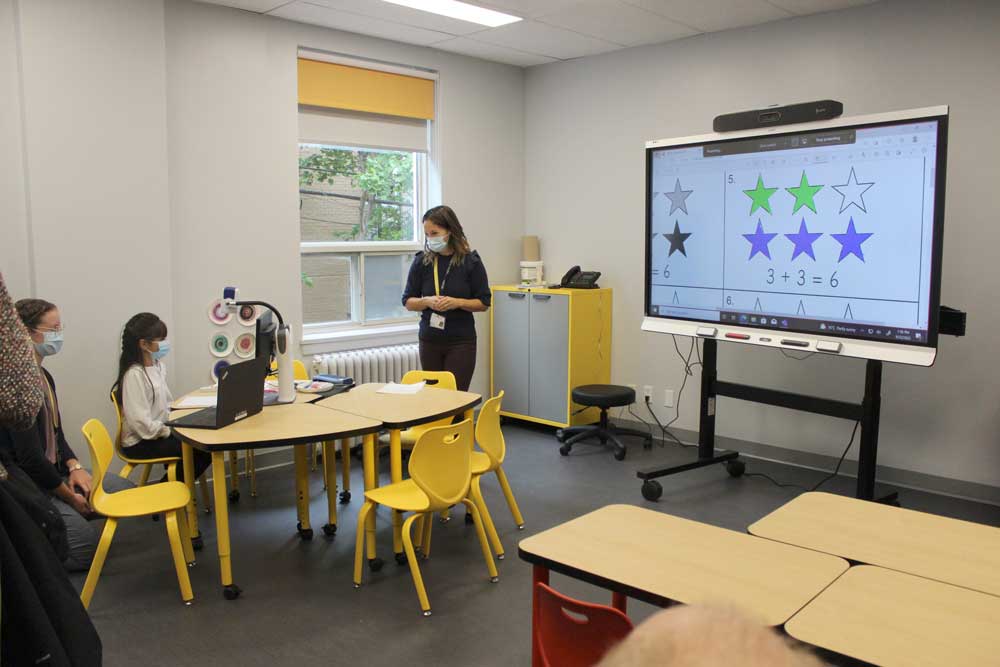Pediatric Low Vision Clinic simulates classroom

by Wendy Singer
On September 21, the Lethbridge-Layton-Mackay Rehabilitation Centre (LLMRC), a part of the CIUSSS Centre-Ouest, launched its new Pediatric Low Vision Clinic at its MAB site in NDG. Funded by the Habilitas Foundation, it consists of a welcoming waiting area with a colourful, engaging and tactile sea-themed mural; an upgraded assessment room equipped with the latest in vision assessment charts, tests and tools; a new blackout therapy room used to assess and work with children with cortical visual impairments with an array of glowing, dynamic and interactive tools and toys; and an adjoining simulated classroom.
The classroom provides children who are blind or have visual impairments with the opportunity to learn and practice everything from how to raise your hand in class, master a combination lock, zip up a jacket, and use adapted technology to better see the content on a Smartboard. “It is the first classroom of its kind in Quebec,” said Christina Nadon, a vision rehabilitation specialist, with the Youth Program 8-24, LLMRC, Centre CIUSSS Centre-Ouest, while presenting the classroom to guests.
Eight-year-old student Sophia Saghati was on hand at the launch event to explain how she uses a closed-circuit television, which projects magnified images onto a monitor, to see what her teacher displays on the Smartboard and to do her schoolwork.
“This simulated classroom allows us to evaluate these tools in the classroom setting to get a sense of what’s going to be really optimal for the child in the upcoming school year,” said Nadon. “We often use the summer as our time to evaluate and work with our kids intensively so they can feel ready come September.”
While the clinic aims to provide children with as much self-assurance and autonomy as possible, it also supports the parents. It has been outfitted with books to help them better understand and support their child’s diagnosis and journey.
Habilitas Foundation’s executive director Theodora Brinckman made clear how important and appreciated donor contributions are. “We are grateful for our donor’s generosity and are particularly touched that so many individuals and foundations came together to make this impressive new clinic a reality. The space is a joyful testament both to the importance of the children we serve, as well as to the kindness of those who contributed.”









